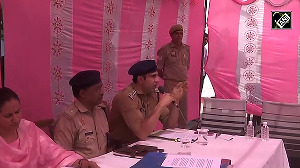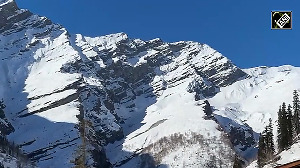 The power of judicial review is being stretched to breaking point, notes M J Antony
The power of judicial review is being stretched to breaking point, notes M J Antony
The Supreme Court of India is said to be the most powerful court in the democratic world. It showed in recent weeks that it could strike down a Constitution Amendment ratified by 20 states, and ‘legislate’ to devise a collegium system not found in the Constitution. On inviting suggestions to refurbish the collegium, Union Minister Arun Jaitley’s jibe was that the court was acting as the constituent assembly.
Despite 65,000 cases in arrears, the court has enough adrenaline to consider issues such as ban on Sardarji jokes on websites, polygamy among Muslims and creating a safe corridor for wild elephants crossing rail lines. However, a visit to the court or reading its judgments would make one wonder whether it is a constitutional court at all. The long-winded arguments droning on in the 14 courtrooms are mostly over civil disputes of distant past involving land, revenue, disciplinary proceedings against employees, interpretation of wills and other mundane subjects, which should have ended in courts below.
In some recent judgments, the court itself has observed that there should be some end to disputes over facts and it should not be dragged to the constitutional court. Last month, it stated in the judgment, Ram Bahal vs deputy director of Consolidation, that “appreciation or re-appreciation of evidence must come to a halt at some stage of the judicial proceedings and cannot percolate to the constitutional court, exercising jurisdiction under Article 136 of the Constitution.”
This provision of the Constitution allows any losing party to approach the Supreme Court even without the mandatory certificate from the court that delivered the judgement. The apex court has discretion to reject such special leave petitions at the threshold, but in fact scores of them are admitted in a normal week. This, despite the court itself having emphasised in several judgments that this discretionary power should be used only in exceptional cases when a question of a law of public importance is involved or the judgement appealed against shocks the conscience of the court.
The number of appeals entering the court through this gateway has exceeded by far the writ petition route. So much so, that in another recent judgment, Leela Rajagopal vs Kamala Menon Cocharan, the court reminded itself that the jurisdiction under Article 136 is “highly circumscribed” and its use should be “highly economic”. The first court might have determined the facts through evidence and examination of witnesses. The high court might have re-examined the evidence on record. Therefore, it is not for the Supreme Court to go through the facts “unless they give rise to questions of law that require a serious debate or discloses wholly unacceptable conclusions of fact, which plainly demonstrate a travesty of justice.”
However, these precepts are not followed in practice. For instance, the list before the chief justice on Monday contained 72 cases, of which 48 were SLPs and 15 appeals. Only one writ petition was listed. The Ram Bahal case mentioned earlier started in 1974 and related to three plots of land in a village. Another recent judgment, Sant Ram vs Dhan Kaur, was an application for clarification of a 2009 order, involving a 1966 sale of 96 sq yards where a 14’/9’ room was built illegally. In a tax appeal by the revenue authorities, the court found that the amount involved was so small that it was not worth even hearing, though the SLP was admitted long ago. These are only specimens; there are rows of them.
Public interest petitions, though they hog the headlines, take very little time of the court. Only a dozen out of more than a thousand cases heard in a week are PILs. Moreover, PILs benefit millions of people, who cannot approach the court directly.
The really undesirable outgrowth of the Constitution is the proliferation of SLPs, which are admitted and dumped in the record rooms till another generation of judges take them up. It might be true that the quality of judgments of the lower courts leaves much to be desired. But there should be some finality somewhere. Repeated review of disputed facts for decades benefits few except the second generation of original petitioners and lawyers. Or 3G.












 © 2025
© 2025